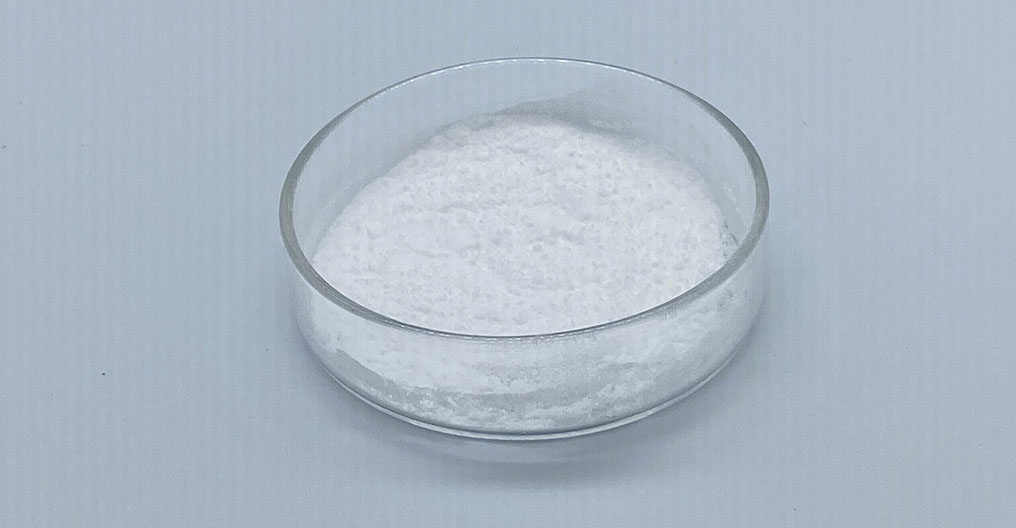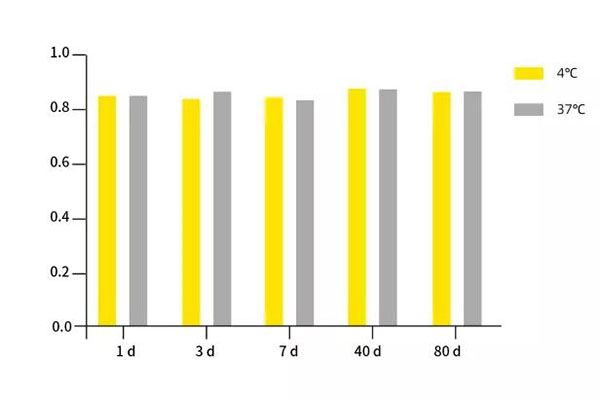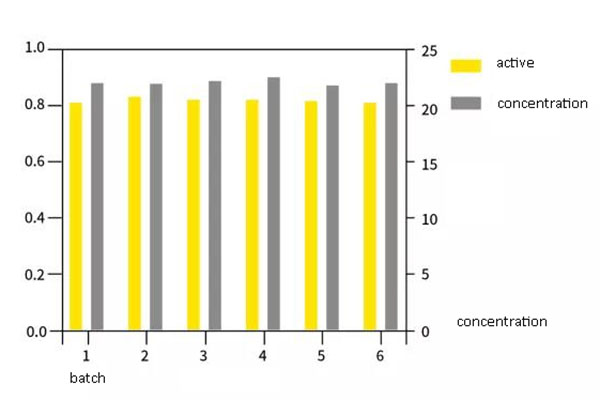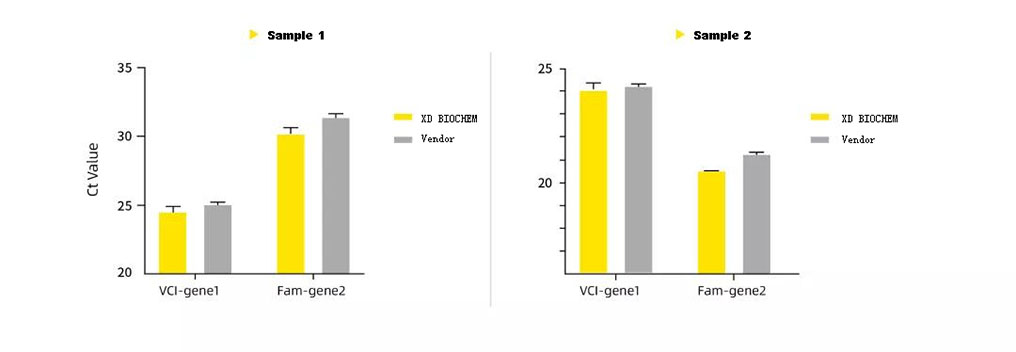There are many unsung heroes around us, who seem to be ordinary, but in fact they silently contribute a lot to us. Proteinase K is the "unsung hero" in the molecular diagnostics industry, although compared with the "big and powerful" in the industry, proteinase K is so low-key that we have long overlooked its importance. With the outbreak of the new crown epidemic, the demand for proteinase K has soared, and the supply at home and abroad is far behind the consumption, and everyone suddenly realized that proteinase K is so important.
What is the use of proteinase K?
Proteinase K is a serine protease with proteolytic enzyme activity and can maintain activity in a wide range of environments (pH (4-12.5), high-salt buffer, high temperature of 70°C, etc.). In addition, the activity of proteinase K is not inhibited by SDS, urea, EDTA, guanidine hydrochloride, guanidine isothiocyanate, etc., and a certain amount of detergent can also enhance the activity of proteinase K. In medical treatment (virus and microbial disinfection), food (meat tenderization), leather (hair softening), winemaking (alcohol clarification), amino acid preparation (degraded feathers), nucleic acid extraction, in situ hybridization, etc., proteinase K There are applications. The most commonly used application is nucleic acid extraction.
Proteinase K can enzymolyze all kinds of proteins in the sample, including those histones that are tightly bound to nucleic acids, so that the nucleic acids can be released from the sample and released into the extract, facilitating the next step of extraction and purification. In the detection of viral nucleic acid, proteinase K is one of the important components in the virus sampling solution. Proteinase K can crack and inactivate the coat protein of the virus, which is safer during the transportation and detection stage; in addition, proteinase K can also degrade RNase prevents the degradation of viral RNA and facilitates nucleic acid detection.
The overnight fame of proteinase K
Whether in the field of scientific research or in the field of IVD, nucleic acid extraction is the most basic experiment, so proteinase K has always been a very important existence. However, in the past, proteinase K was far less well-known than its role. A large part of this was because the supply and demand relationship of proteinase K was very stable. Few people would think that the supply of proteinase K would be a problem.
With the outbreak of the new crown epidemic, the demand for nucleic acid testing has surged. As of late June 2020, China has completed nearly 90 million new crown tests, and this number is even more alarming on a global scale. In nucleic acid extraction experiments, the working concentration of proteinase K is about 50-200 μg/mL. Generally, it takes about 100 μg of proteinase K to extract a sample of nucleic acid. In actual use, in order to increase the efficiency of nucleic acid extraction, often Proteinase K will be used in an increased amount. Nucleic acid detection of the new coronavirus has brought a large amount of proteinase K demand. The original supply and demand balance of proteinase K was quickly broken, and proteinase K became an important epidemic prevention material overnight.
Difficulties in the production of proteinase K
Although with the development of the epidemic, the important value of proteinase K has been valued by people, it is embarrassing that due to the excessive low-key of proteinase K, few domestic companies have been involved in the production of proteinase K. When people want to establish proteinase K production During the production process, it was discovered that proteinase K is an extremely special protein. It is extremely challenging to expand the production capacity of proteinase K in a short period of time.
The large-scale production of proteinase K faces the following difficulties
1. Low expression
Proteinase K can non-specifically degrade most proteins and cause serious toxicity to the expression host cell. Therefore, the expression level of proteinase K is generally very low. Screening of expression systems and strains that highly express proteinase K generally requires a longer cycle.
2. Residues of pigments and nucleic acids
Large-scale fermentation introduces a large amount of pigment and host nucleic acid residues. It is difficult to remove these impurities with a simple purification process, and complex purification increases the cost and reduces the recovery rate.
3. Instability
Proteinase K is not stable enough, it can enzymolyze itself, and it is difficult to store it stably at 37°C for a long time without a protective agent.
4. Easy to precipitate
When preparing the freeze-dried powder of proteinase K, in order to ensure that the solid content of proteinase K in the freeze-dried powder is large, it is necessary to add a freeze-dried protective agent at a high concentration, but when the concentration of proteinase K reaches 20mg/mL and above, it is easy The aggregation forms a precipitate, which brings great difficulties to the freeze-drying of proteinase K with a high solid content.
5. Large investment
Proteinase K has strong protease activity and can hydrolyze other proteases in the laboratory. Therefore, proteinase K requires specialized production areas, equipment, and personnel for research and development and production.
XD BIOCHEM's proteinase K solution
XD BIOCHEM has a mature protein expression and purification platform, and has rich experience in the expression and purification of recombinant proteins and optimization of production processes. Through the rapid formation of a research and development team, the large-scale production process of proteinase K has been overcome. The monthly output of freeze-dried powder is more than 30 KG. The product has stable performance, high enzyme specific activity, and no host cytochrome and nucleic acid residues. Welcome to contact XD BIOCHEM Obtain a trial package (E-mail: sales@xdbiochem.com Tel: +86 513 81163739).
XD BIOCHEM's technical solutions include
Using multi-copy plasmid integration, high-expression strains with an expression level of 8g/L are selected, which overcomes the problem of low expression level of proteinase K.
Through the establishment of a multi-step purification process, the host cytochrome and nucleic acid residues of proteinase K were successfully removed below the standard value.
Through high-throughput screening of protective buffer formulations, a buffer that can stably store proteinase K at 37°C was selected.
Screening buffers overcomes the problem that proteinase K is easy to aggregate and precipitate at high concentrations, and lays the foundation for proteinase K's high solid content freeze-drying.


XD BIOCHEM proteinase K sample

XD BIOCHEM proteinase K stability test: there will be no significant change in activity after 80 d at room temperature

XD BIOCHEM proteinase K stability test: there will be no significant change in activity after 80 d at room temperature.
Comparison of the nucleic acid extraction effect of XD BIOCHEM proteinase K and competing products. In the process of nucleic acid extraction, XD BIOCHEM and competitive proteinase K are used respectively. The extraction efficiency of XD BIOCHEM proteinase K is higher and the Ct value of the target gene is lower.
Post time: Dec-31-2021

